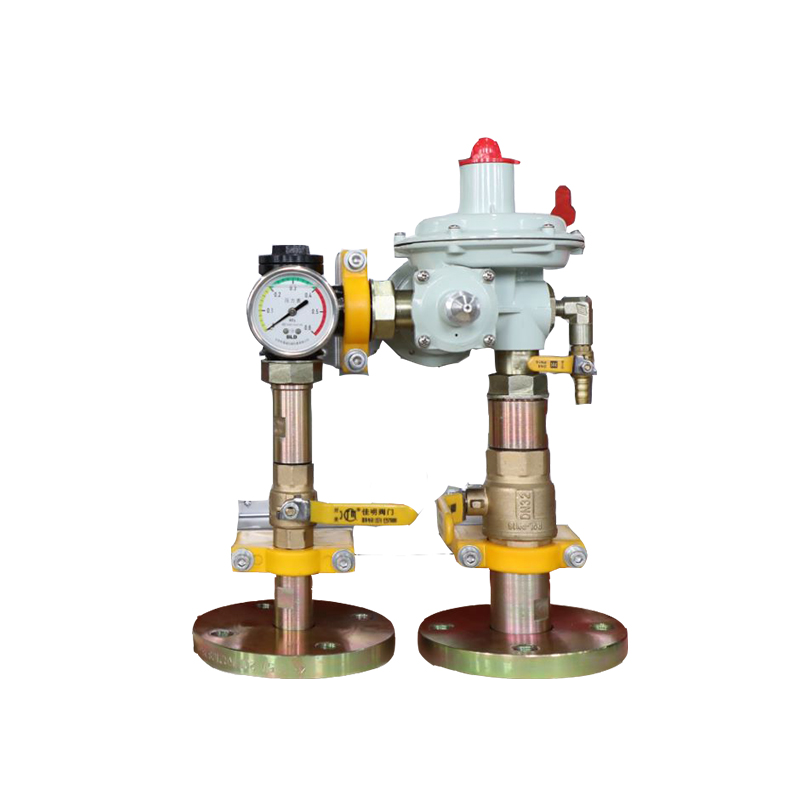
Jul . 28, 2024 09:12
Back to list
Understanding Gas Pressure Vessels and Their Importance in Safe Industrial Applications
Understanding Gas Pressure Vessels Importance, Types, and Applications
Gas pressure vessels are critical components in various industries, serving as containers that safely store gases at high pressures. These vessels are designed to withstand the stresses and strains imposed by the gases they contain, making them essential for processes in chemical production, energy storage, and even domestic uses. This article delves into the significance of gas pressure vessels, their types, and their applications.
Significance of Gas Pressure Vessels
Gas pressure vessels are fundamental in ensuring safety and efficiency in operations that involve high-pressure gases. The ability to store gases under pressure allows industries to utilize these gases in a controlled manner, reducing the risks associated with gas leaks or explosions. Proper construction and maintenance of these vessels are crucial, as any failure can lead to catastrophic events, impacting not only the facility but also the surrounding environment and communities.
The materials used in constructing gas pressure vessels must ensure durability, strength, and resistance to extreme temperatures and corrosive substances. Steel, for example, is commonly used due to its high tensile strength, while coatings or linings are often applied to protect against specific chemicals.
Types of Gas Pressure Vessels
Gas pressure vessels can be categorized based on their design and functionality. The two primary types include
.
2. Spherical Vessels Spherical pressure vessels provide a unique solution by minimizing stress concentrations due to their geometric shape. This design is particularly beneficial for storing gases at very high pressures. Although they occupy more space, their strength and efficiency in handling pressure make them suitable for specific applications.
وعاء ضغط الغاز

Applications of Gas Pressure Vessels
Gas pressure vessels serve a wide array of applications across different sectors. Some common uses include
- Chemical Manufacturing In the chemical industry, gas pressure vessels are used for storing reaction gases, as well as for transporting chemicals in gaseous form. Due to the volatile nature of many chemicals, employing robust pressure vessels is essential for safety.
- Natural Gas Storage In the energy sector, pressurized gas vessels are utilized for the storage and distribution of natural gas. Compressed natural gas (CNG) systems rely on specially designed vessels to maintain high pressures, making it a cleaner alternative to liquid fuels.
- Refrigeration and Air Conditioning Gas pressure vessels play a crucial role in refrigeration systems, where gases are compressed to create cooling effects. The vessels must be designed to handle repeated pressure cycles without failure.
- Diving and Aviation In recreational diving, pressure vessels are used to store breathing gases, such as compressed air or specialty gas mixtures. Similarly, in aviation, gas cylinders are employed for various functions, including cabin pressurization.
Conclusion
The design and utilization of gas pressure vessels are pivotal in numerous industries, ensuring safe gas storage and handling. As technology continues to evolve, so too will the materials and methods used to construct these essential vessels, contributing to safer and more efficient operations worldwide. Understanding the dynamics of gas pressure vessels not only enhances safety but also promotes innovation in the way industries manage gaseous substances.
Latest news
-
Safety Valve Spring-Loaded Design Overpressure ProtectionNewsJul.25,2025
-
Precision Voltage Regulator AC5 Accuracy Grade PerformanceNewsJul.25,2025
-
Natural Gas Pressure Regulating Skid Industrial Pipeline ApplicationsNewsJul.25,2025
-
Natural Gas Filter Stainless Steel Mesh Element DesignNewsJul.25,2025
-
Gas Pressure Regulator Valve Direct-Acting Spring-Loaded DesignNewsJul.25,2025
-
Decompression Equipment Multi-Stage Heat Exchange System DesignNewsJul.25,2025

